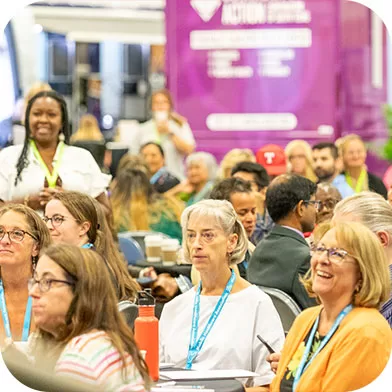Cultivating Compassion: The Family Van’s Service-Learning Model

Despite the increasing diversity in the US population, a notable disparity persists: over 60% of the top 25 healthcare professions are dominated by white professionals (U.S Department of Labor Statistics). Research further indicates that physicians of color are disproportionately caring for patients of color, as these patients often seek care from providers who share their racial identity, fostering cultural competence and language concordance. While many pipeline programs provide shadowing opportunities, The Family Van program distinguishes itself by offering aspiring health professionals of all background’s opportunities for hands-on learning. Working within communities, students engage in one-on-one interactions, health screenings, and health education, exposing them to the intricacies of healthcare disparities and the significance of culturally responsive care. This comprehensive approach not only teaches students about community engagement, activism, and resource navigation but also introduces them to alternative healthcare delivery models. Mobile medicine serves as a crucial gateway to healthcare for marginalized communities, illustrating innovative approaches to promoting accessible care. The Family Van illustrates how service-learning opportunities can nurture diversity, inclusion, and culturally responsive practices within the healthcare sector. We will further demonstrate how these models can catalyze the promotion of health equity throughout students’ careers as they actively participate in community-based services. Testimonials from participants underscore the program’s significant influence in shaping their future careers in healthcare, while also contributing to diversifying and enhancing a culturally responsive workforce. Recruitment ideas, student profiles, (18+ and enrolled in an undergraduate program), training and program curriculum will be discussed, as well as program costs including paid student stipends. We will talk about mentorship modules, how we partner with local community organizations and funders, and how to share the success with these funders to sustain the program each summer. “I am so grateful to learn in such an open, and accepting environment, with fantastic health professionals and mentors. That along with being able to work in my own community is exactly the reason I want to go into healthcare. I want to make visiting the hospital or clinic less stressful and scary for my community, and I want to be a part of the next generation of healthcare workers that bring that change.” Learning Objectives: Participates will reflect on the benefits to implementing a service-learning program on their unit. The Family Van will demonstrate impact of a featured students through visuals and reflections. Participants will learn strategies for program development including student recruitment, training, mentoring modules, budgeting and the benefits of a paid vs unpaid experience for the students. Participants will learn how to engage other community organizations and funders in supporting service learning opportunities on their mobile unit.
Simone de Oliveira, Volunteer Program Manager/Community Health Worker, The Family Van; Mary Kathryn Fallon, Assistant Director, The Family Van & Mobile Health Map